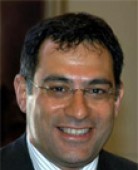
An investigation at the University of New South Wales in Australia has determined that a long-accused cancer researcher did not commit misconduct.
The investigation did find instances when Levon Khachigian breached the code of conduct, but
these breaches were the result of Professor Khachigian’s genuine error or honest oversight, not deliberate or intentional conduct.
In 2013, UNSW halted trials of a skin cancer drug, DZ13, while it investigated Khachigian’s work following accusations of misconduct. DZ13 targets a protein involved in the early stages of cancer, c-jun.
A statement about the UNSW investigation, released late last month, brings the matter to a close:
The University of New South Wales has investigated a number of matters concerning research and publications involving Professor Levon Khachigian, an NHMRC Australia Fellow. The issues involved alleged Research Misconduct and alleged breaches of the UNSW Research Code of Conduct.
Over a period of several years, UNSW has commissioned multiple different, independent external panels of inquiry or reports to investigate and to report on the alleged breaches, in accordance with the Australian Code for the Responsible Conduct of Research and the University’s own Procedure for Handling Allegations of Research Misconduct. The investigation processes have been confidential, as required under the University’s Academic Staff Enterprise Agreement. All of the issues have now been dealt with and there are no outstanding allegations under investigation by the University.
None of the independent inquiry panels have made any finding of Research Misconduct on the part of Professor Khachigian.
The panels of inquiry found that there had been breaches by Professor Khachigian of the UNSW Research Code of Conduct, but that these breaches were the result of Professor Khachigian’s genuine error or honest oversight, not deliberate or intentional conduct.
Khachigian is now back at work, the statement notes:
Following a period of agreed leave while the allegations were investigated, the NHMRC has reinstated his research funding and Professor Khachigian has returned to work at the University.
UNSW regards all breaches of the UNSW Research Code of Conduct as being of great concern regardless of whether or not they are deliberate or intentional. The University will always take steps to ensure that all of our research is conducted with high standards of integrity and safety.
According to our tally, Khachigian has received four retractions. We’ve also discovered a correction Khachigian issued in August for errors in a 2006 letter in Nature Biotechnology. Here’s the note:
In the version of this article initially published, the first three bars in the histogram in Figure 1a should have read “No vehicle,” “No Dz” and “Dz13” instead of “No Dz,” “Dz13” and “Dz13scr.” The legend of Figure 1a should have included the sentences: “’No vehicle’ represents the normoxia control without vehicle (transfection agent) or DNAzyme or siRNA. All other groups contain vehicle.” The H&E-stained images in Figure 1a should have read “Dz13 in hyperoxia-normoxia” and “Dz13scr in hyperoxia-normoxia” instead of “Normoxia” and “Hyperoxia-normoxia.” None of the conclusions is affected by the errors. The errors have been corrected in the HTML and PDF versions of the article.
Some of his papers have also been questioned on PubPeer. In recent weeks, we contacted some of the journals who published papers by Khachigian; none said they were planning on taking any action. Here, for example, is a statement we received November 5 from PLOS ONE, regarding this 2012 paper:
PLOS understands from the information available to you, as well as our follow up with Levon Khachigian, that the University of New South Wales has completed their investigation into the concerns as per their institutional process and established that no findings of research misconduct have been made in relation to Professor Khachigian. ThePLOS ONE article pone.0039160 was evaluated as part of the institutional process. In accordance with the recommendations of the Committee on Publication Ethics (COPE), of which PLOS ONE is a member, the journal abides by the outcome of institutional investigations. Given that the institution has indicated that there are no findings of research misconduct in relation to Professor Khachigian or grounds to correct the PLOS ONE article, we will not be taking further steps regarding this publication.
In 2013, Khachigian and his colleagues reported the Phase 1 results from DZ13 in The Lancet:
Nine patients were recruited, of whom three received each dose of Dz13. All patients completed the study with no drug-related serious adverse events. No systemic Dz13 exposure was detected. c-Jun expression was reduced in the excised tumours of all nine (100%) patients, compared with baseline, and histological tumour depth had decreased in five (56%) of nine.
The authors concluded:
Dz13 was safe and well tolerated after single intratumoral injections at all doses.
There are no listings of trials including the term “DZ13” on clinicaltrials.gov.
Like Retraction Watch? Consider making a tax-deductible contribution to support our growth. You can also follow us on Twitter, like us on Facebook, add us to your RSS reader, and sign up on our homepage for an email every time there’s a new post. Click here to review our Comments Policy.
This sort of honest error happens to people all the time:
https://pubpeer.com/publications/0F11706C8359BCE89E2B41CD846A68#fb7979
There are COPE instructions for unsatisfactory institutional investigations. The statement from PLoS that a journal should accept any institutional investigation is false. A journal can even reject an investigation and proceed with retractions if authors violate journals policies. This PLoS spokesperson should read more before saying such misleading claims. I suggest RW contact him/her again with the follow COPE guidelines
Journal editors should consider issuing an expression of concern if:
• they believe that an investigation into alleged misconduct related to the publication either has not been,or would not be, fair and impartial or conclusive
http://publicationethics.org/files/retraction%20guidelines.pdf
Is there any report available?
The link to the statement isn’t working.
Link has been fixed, thanks!